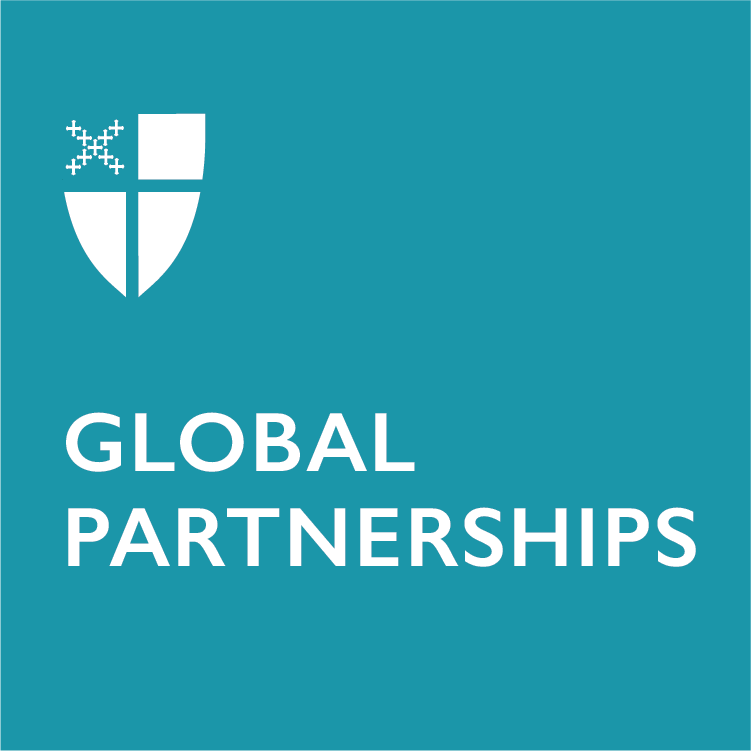Sam McDonald makes a new friend while on a site visit with Be the Change-Kenya.
Sam McDonald, the Deputy Chief Operating Officer and Director of Mission of The Episcopal Church, recently visited Kenya. During his time in Nairobi, he visited two Episcopal Church missionaries who work in the area. Many thanks to Sam for sharing his thoughts about his visit on our blog!
I spent my first full day in Kenya with a marketing phrase espoused by a multinational chemical company — “we don’t make the products you use; we make them better” — going through my head. And why, while touring the Nairobi area with two missionaries of The Episcopal Church, was this expression renting space in my mind? Well, imagine missionary work that is not a ministry providing a direct service of food, education, orphanage, scholarships, agricultural development, grants, or HIV/AIDS or Malaria prevention, nor any direct funding whatsoever. Imagine a person with a heart for missionary service and trained in community organizing at Harvard’s Kennedy School who believes that the solutions for all the struggles direct service ministries provide actually lie within the people of Kenya. What if those solutions — the people and resources of Kenya — could be further developed and set loose? What if you viewed these as unleveraged, untapped assets that could organize themselves into a force for good and a force for positive permanent change?
That is largely my impression of a remarkable ministry, Be the Change – Kenya (and now Tatua Kenya), envisioned and founded by a missionary of the Episcopal Church: Natalie Elaine Finstad (Diocese of Massachusetts). Natalie is now supported by Jenny Korwan (Diocese of Atlanta), a member of the Young Adult Service Corps.
Natalie has taken her expertise in community development and the mobilization of young adults and has started a movement in an area outside of Nairobi. She works alongside teams of young adults trained as community organizers to mobilize the people within their communities to see that they already have power to be unleashed for good and for permanent change. They connect business leaders with locally founded and operated ministries, and these business leaders serve as mentors and resources of expertise. Be the Change – Kenya brings in local, successful people with proven track records in grant proposal writing, business management and record keeping, and accounting, among other skills.
A Kenyan mother, moved by the sight of a found orphan baby, came home one day and told her husband that they were going to open an orphanage in their home. Now, a few years later, the orphanage has fifty children. They have a small plot of land to grow maize, a portion of which feeds their seven milk cows. The waste from the cows is converted into biofuel by a natural, organic operation onsite. The ‘mama’ introduced us to the social worker they have just brought on staff. Though micro, the operation is incredibly complex. Be the Change has a team of young adults, trained in organization and development, from around the community who assist with building the base and foundation to continue its sustainability. They offer workshops about goal setting and proposal writing. The components necessary for its success lay there within the rural community. Natalie is convinced of this, she is convincing those in Kenya with whom she works, and, frankly, she is convincing me. The work of Be the Change – Kenya is a remarkable model for missionary service. It is not the only model, but it is one that we would be wise to pay attention to.
Natalie so clearly connects her expertise with her deep, abiding faith and her spiritual walk. It is this connection, I think, that makes her a true missionary. This is a calling by God to give away her treasure to others, so that it becomes the treasure of others and will continue to be given away. I suspect that Kenyans will take this treasure and shape it, mold it, and continue to improve it.
